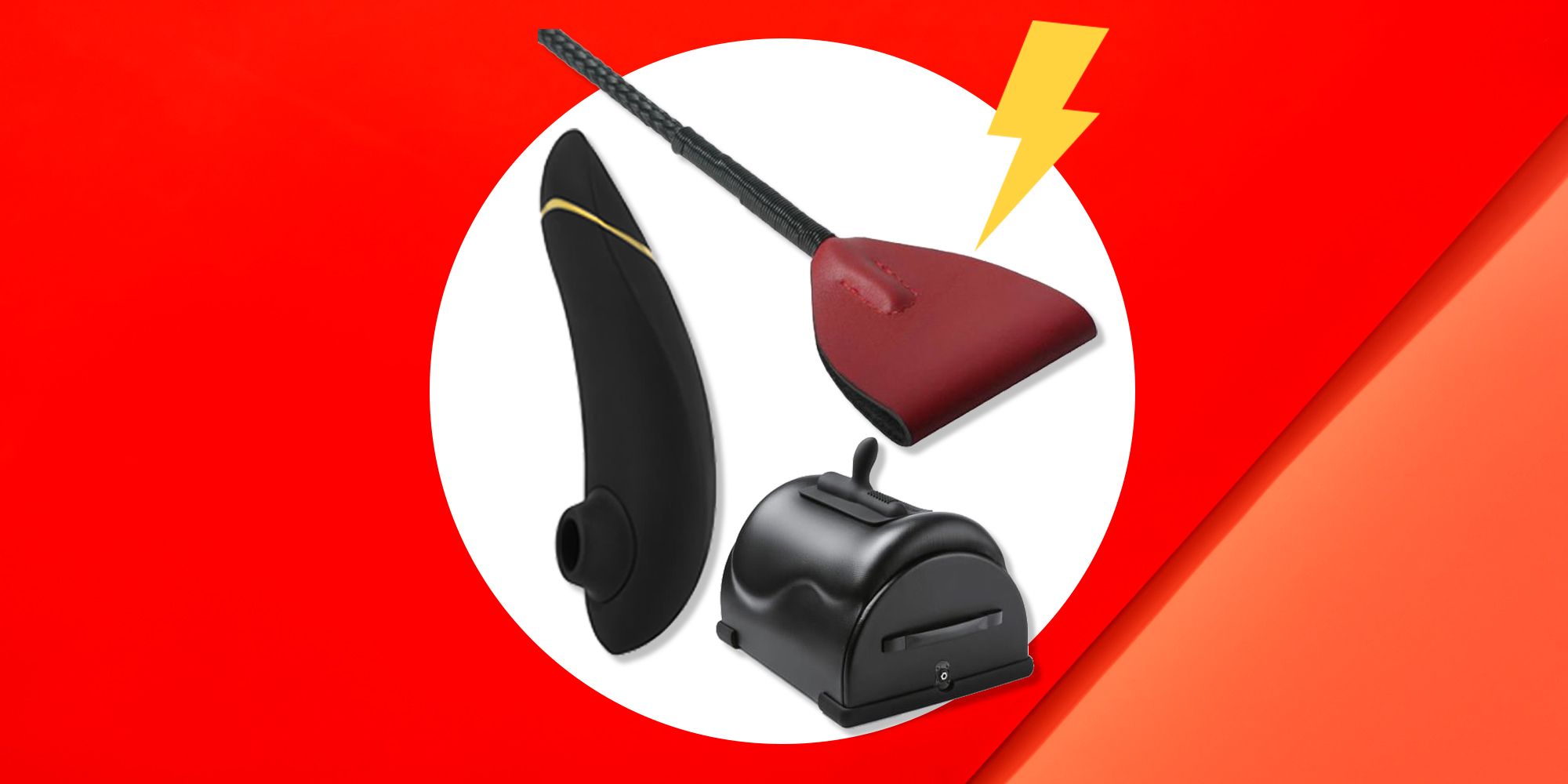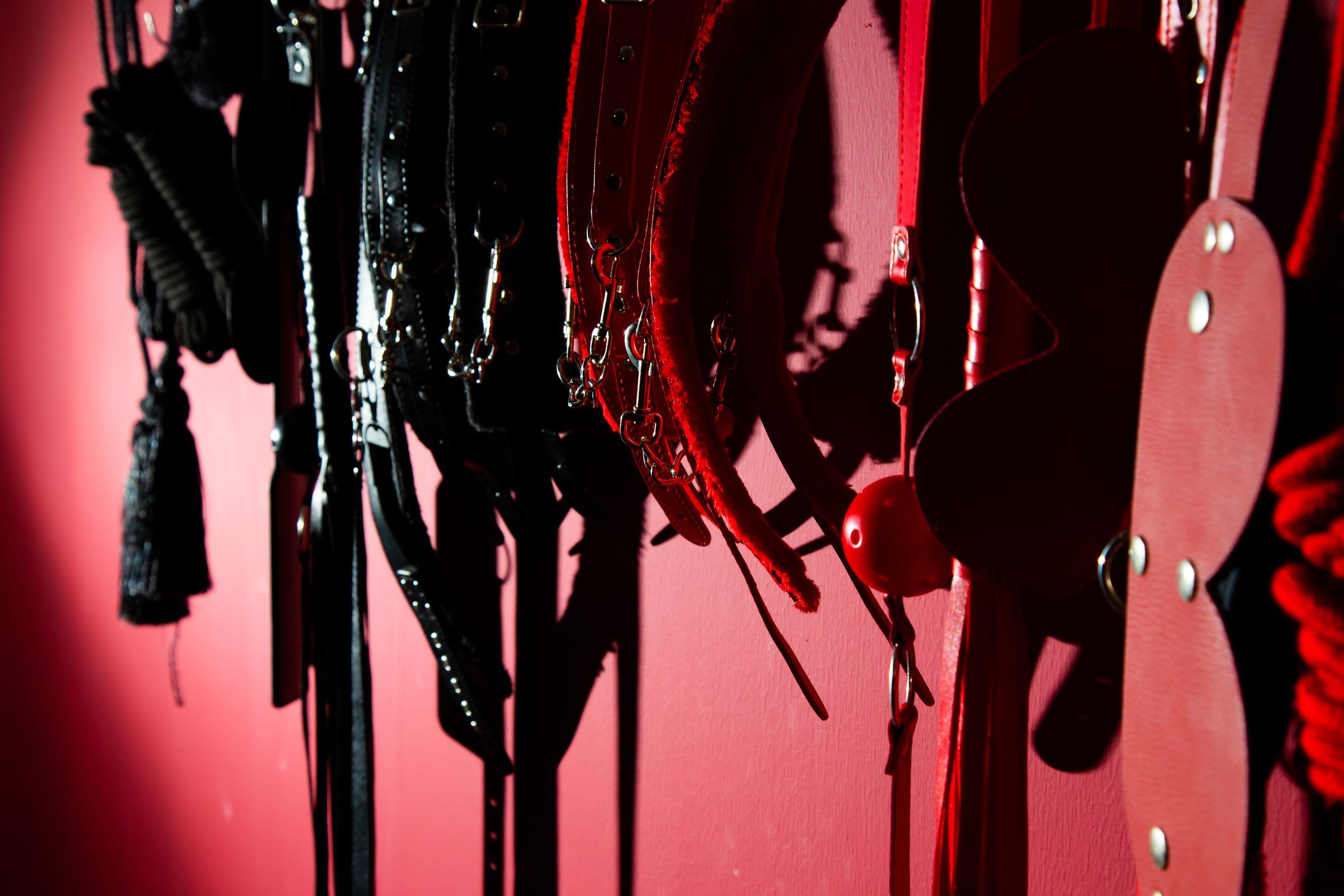Bachelorette star Katie Thurston has made it very clear that she’s sex-positive. And, with that, plenty of conversations have already happened on the show around sex.
Now, it seems, there’s an entire group date happening around one aspect of sex in particular: having a safe word.
Katie dropped a sneak peek photo on Instagram from episode two of her season that shows herself hanging out next to a mannequin and comedian and actress Heather McDonald. “Shoutout to @heathermcdonald for helping me host a #nsfw group date! Remember to tune in Monday nights on ABC!” she wrote, before diving into the definition of a safe word.
“Safe Word: a word serving as a prearranged and unambiguous signal to end an activity, such as between a dominant and submissive sexual couple,” Katie wrote. “Our Safe Word: Peaches 🍑.”
https://www.instagram.com/p/CP-6feSMVgs/
A post shared by Katie Thurston (@thekatiethurston)
Katie has made it super clear on and off the show that she wants to have sex-positive dates. “You’ll see [sex positivity] incorporated throughout the season in various ways that make it light and fun but also make it serious and important,” she recently told Women’s Health. “I think having both of those views of it are a good way to kind of start the conversation.”
OK, but asking for a friend here: Who needs a safe word, and what should it be?
So…why is it important to have a safe word?
If you’re going to be doing any kind of role play, BDSM, or really anything that pushes you out of your comfort zone, you need a safe word.

“The purpose of a safe word is to signal an immediate response, when you are too immersed in an experience that you consent to and don’t have the language to elaborate fully,” says Janet Brito, PhD, an AASECT certified sex therapist and supervisor, and founder of the Hawaii Center for Sexual and Relationship Health. “It lets your consenting partner know that you have reached your limit, and are requesting an end to the activity.”
Things can get heated in bed, and a safe word is something that you’ll want to whip out if the situation goes too far or you or your partner cross a line that you didn’t anticipate, Holly Richmond, PhD, a somatic psychologist and certified sex therapist, previously told Women’s Health.
Once you hear or say the safe word, the situation should shut down immediately and you or your partner should comfort each other, Richmond says. (You and your partner should talk about this beforehand, just to make sure you’re both on the same page.)
How do you pick a safe word?
It should be something that you wouldn’t normally hear or say in the bedroom. “It’s best if the safe words are simple and easy to reference,” Brito says, adding that the word should be “neutral.”

“Safe words like names of fruits, favorite hobbies, meaningful words or places you both like or that describe a place you fondly remember are helpful to remember and easier to respond to than a sexually charged word that may have a double meaning,” she says.
Some examples:
- Milkshake
- Turtleneck
- Red (like, ya know, a stoplight)
Words you don’t want to use are things you might say during role play, but not actually mean, like “no” or “stop.”
When should you use a safe word?
If you feel at all uncomfortable, you’re in pain, or you’re feeling triggered, reach for your safe word. A safe word is “a type of quick communication to inform your consenting partner that you need to stop or pause to get comfortable again, or to completely stop the activity due to requiring additional support—medical, emotional, or physical,” Brito says.

Ultimately, the safe word is there to help you both maintain respectful boundaries, Brito says. So, if you need it, use it.
Source: Read Full Article





